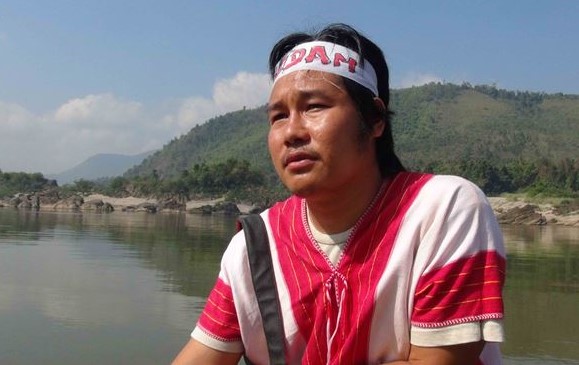Interview with Saw Thar Boe, the spokesperson of Karen Rivers Watch
Environmental impact has been significant in ethnic areas of Myanmar in the past two years after coup, the protective measures on these resources have declined, according to the report of Karen Rivers Watch on 14 March.
It also said the mega hydropower projects on the rivers have negative impacts on the environment and people in river valley areas. The environmental degradation of water resources and suggestions to international and relevant entities and individuals, as well as other prevailing situations in Kayin State were focused in this interview with Saw Thar Boe, the spokes person of Karen Rivers Watch.
TLT: What is the situation of environmental impacts on water resources in Kayin State after the military coup in Myanmar?
Saw Thar Boe: Myanmar has lost a legitimate government after the coup, as well as no administration and no control measures. In this circumstance, businesspersons at all levels try to take advantages on this weakness. Some of them resumed mineral exploration and some others attempted to construct dams on the water resources. These are some of significant examples. Junta Chief Min Aung Hlaing visited Hpa-an after the coup. He announced construction of Hatgyi dam. Without letting the locals known about this project, he talked about survey works with international experts. Although these processes were not informed to the public, the project is being implemented.
TLT: The report of KRW said that locals are in dire need of humanitarian assistance as they have fled into the forests and mountains due to offensive attacks of the military. Why was this report released?
Saw Thar Boe: All sectors including education, health, social and religious have declined in the past two years after the coup. This dam project was announced in 2013. Locals in Hatgyi areas have already experienced the ongoing situations which people across the country are encountering at present since that time.
Many of them could not return from the refugee camps to their homes. They are still living as the IDPs. The displaced persons do not have basic needs. Their difficulties are unbelievable. They need food, shelter, clothes, medicines, and personal items for women and children. These are the basic needs for survival. It has been difficult for us to get public funds and donation in the long run. They require direct contribution of international assistance which should go to independent NGOs and civil society organizations.
TLT: What is additional remark of KRW on the environmental degradation of water resources during the term of military regime?
Saw Thar Boe: We have suggested to relevant organizations. Especially, dam construction must be stopped. Water resource is very rare in the world. Although water is not highly valued in Myanmar, it is protected by law in other countries like human beings. Water resource is essential for your daily life. It is important for the next generations. If the water resources deteriorate, it is tantamount to killing our existence. Rivers provide food , while fishes in the rivers can create livelihoods for the locals. If we cannot conserve these resources, the locals could not survive any longer. Our country is not a technology-based nation. But it relies on natural resources. Destroying these resources mean the loss of our lives and property. As a result, our posterity will surely encounter difficult situations.

